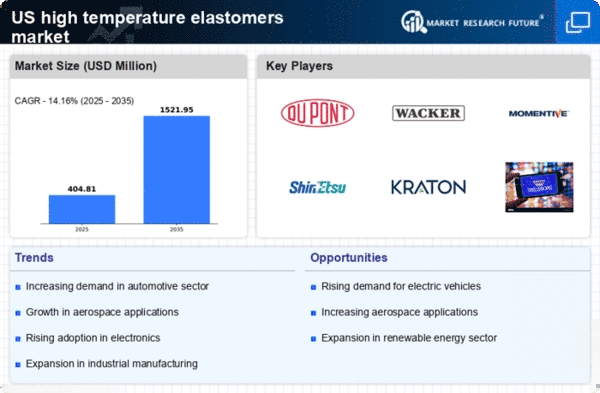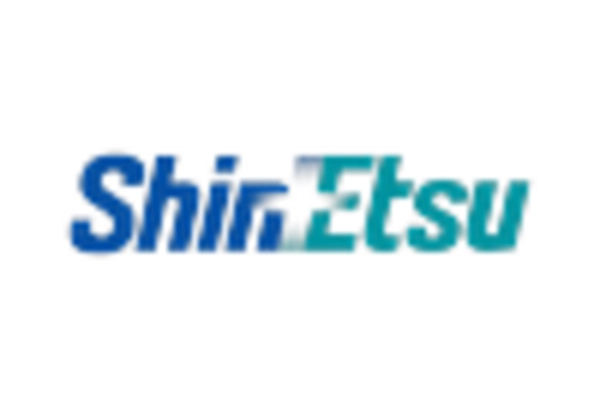Increasing Industrial Applications
The high temperature-elastomers market is experiencing growth due to the increasing demand from various industrial applications. Industries such as aerospace, automotive, and oil and gas are increasingly utilizing high temperature-elastomers for their superior thermal stability and resistance to harsh environments. For instance, the aerospace sector requires materials that can withstand extreme temperatures and pressures, leading to a projected market growth of approximately 6% annually. This trend indicates a robust expansion in the high temperature-elastomers market, driven by the need for reliable materials that can perform under challenging conditions.
Expansion of Manufacturing Capabilities
The expansion of manufacturing capabilities in the high temperature-elastomers market is a crucial driver of growth. As demand increases, manufacturers are investing in advanced production technologies to enhance efficiency and output. This expansion is particularly evident in the US, where companies are scaling up operations to meet the rising needs of various sectors. The increased production capacity is expected to support a market growth rate of approximately 5% in the coming years, as manufacturers aim to provide high-quality materials that meet the stringent requirements of their clients.
Regulatory Compliance and Safety Standards
The high temperature-elastomers market is significantly influenced by stringent regulatory compliance and safety standards across various industries. In sectors like automotive and aerospace, adherence to safety regulations necessitates the use of materials that can withstand high temperatures without degrading. This has led to an increased adoption of high temperature-elastomers, as they meet the required specifications for safety and performance. The market is projected to grow as manufacturers seek to comply with these regulations, potentially increasing the market size by 5% over the next few years.
Rising Investment in Research and Development
Investment in research and development is a key driver for the high temperature-elastomers market. Companies are focusing on developing innovative materials that offer enhanced performance characteristics, such as improved thermal stability and chemical resistance. This trend is likely to lead to the introduction of new high temperature-elastomers that cater to specific industry needs. As R&D efforts intensify, the market could see a surge in new product offerings, potentially increasing market share by 4% as companies strive to meet evolving customer demands.
Growth in Electronics and Electrical Applications
The high temperature-elastomers market is benefiting from the growth in the electronics and electrical sectors. As electronic devices become more compact and powerful, the demand for materials that can withstand high temperatures without losing performance is rising. High temperature-elastomers are increasingly used in insulation, connectors, and other components, which is expected to drive market growth. The electronics sector is projected to contribute significantly to the high temperature-elastomers market, with an anticipated increase of around 7% in demand over the next few years.

















